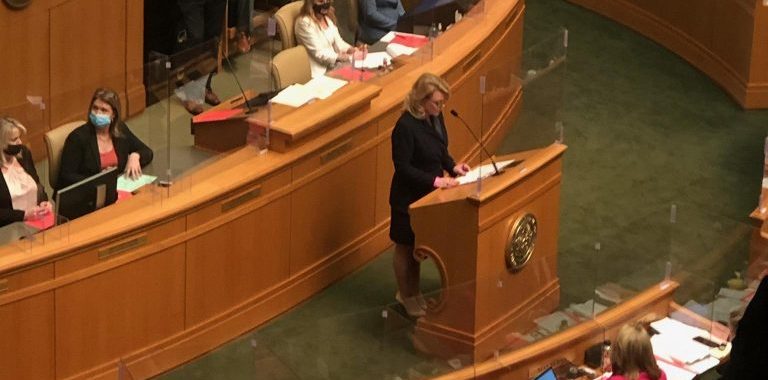Arkansas Congressman French Hill Praises President Trump’s Order Against Debanking

Last week, President Trump signed an executive order against debanking. The purpose of the order is to guarantee fair banking for all Americans.
Arkansas Congressman French Hill (AR-02), who chairs the House Committee on Financial Services, issued a statement praising the order, saying,
“Targeting Americans for their political beliefs undermines the freedoms our country was built upon and should have no place in our financial system. I commend President Trump for taking decisive action to protect all Americans from politically motivated financial discrimination. The president’s executive order is an important step toward restoring fairness and accountability in our banking system, and the House Financial Services Committee will continue its work to investigate and prevent debanking for lawful businesses.”
Congressman Hill also published the following timeline regarding federal inquiries into debanking:
- On April 29, 2025, the Subcommittee on Financial Institutions, led by Subcommittee Chairman Barr, held a hearing to examine regulatory overreach and debanking.
- On February 20, 2025, Chairman Hill, Subcommittee Chairman Dan Meuser (PA-09), Subcommittee Chairman Andy Barr (KY-06), and Subcommittee Chairman Bryan Steil (WI-01), sent a letter to Federal Deposit Insurance Corporation (FDIC) with recommendations to help clarify digital asset regulations and prevent debanking.
- On February, 6, 2025, the Subcommittee on Oversight and Investigations, led by Subcommittee Chairman Meuser, held a hearing to discuss debanking efforts under the Biden-Harris Administration.
- On May 21, 2025, the Committee passed H.R. 2702, the FIRM Act, with bipartisan support, to remove reputational risk from bank supervision. This bill directly aligns with the Federal Reserve’s recent decision to remove reputational risk from their exam process.
- In March and April 2023, then-Digital Assets, Financial Technology and Inclusion Subcommittee Chairman French Hill, then-Oversight and Investigations Subcommittee Chairman Bill Huizenga, and former Chairman Patrick McHenry sent multiple letters to the Chair of the Board of Governors of the Federal Reserve System, Jerome Powell, then-Chairman of the Federal Deposit Insurance Corporation (FDIC), Martin Gruenberg, and then-Acting Comptroller of the Currency, Michael Hsu, requesting information related to potential coordinated efforts by the agencies to deny banking services to digital asset firms and the ecosystem as a whole.
- In March 2023, then-Digital Assets, Financial Technology and Inclusion Subcommittee Chairman French Hill held a hearing to highlight the Biden Administration’s Attack on the Digital Asset Ecosystem.
We have written repeatedly about allegations that major financial institutions have deliberately debanked conservative individuals and organizations.
In 2021 Family Council’s credit card processor abruptly cancelled our account after designating our organization as “high risk.” Unfortunately, this was not an isolated incident. Other organizations have had similar experiences as well.
We deeply appreciate the Trump Administration and congressmen like Rep. French Hill leading the way against debanking. After all, banks that are too big to fail are too big to discriminate.
Articles appearing on this website are written with the aid of Family Council’s researchers and writers.




